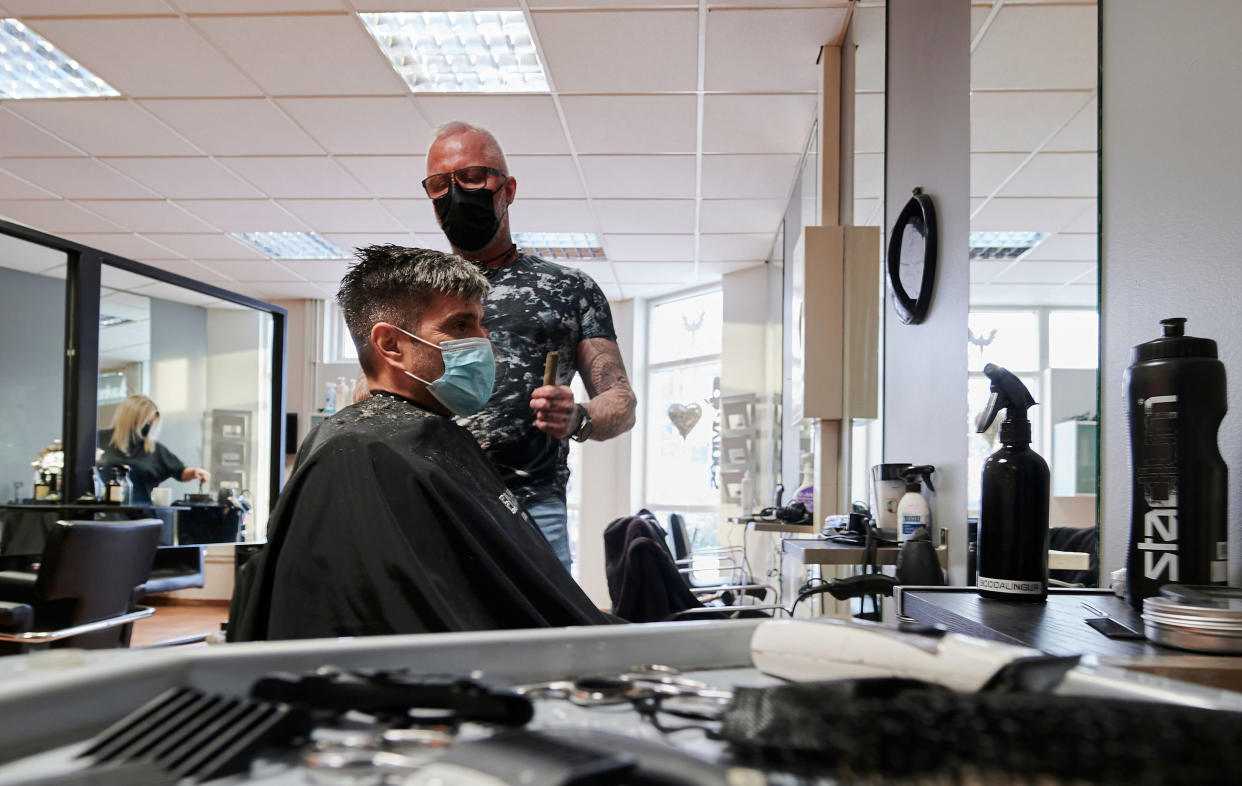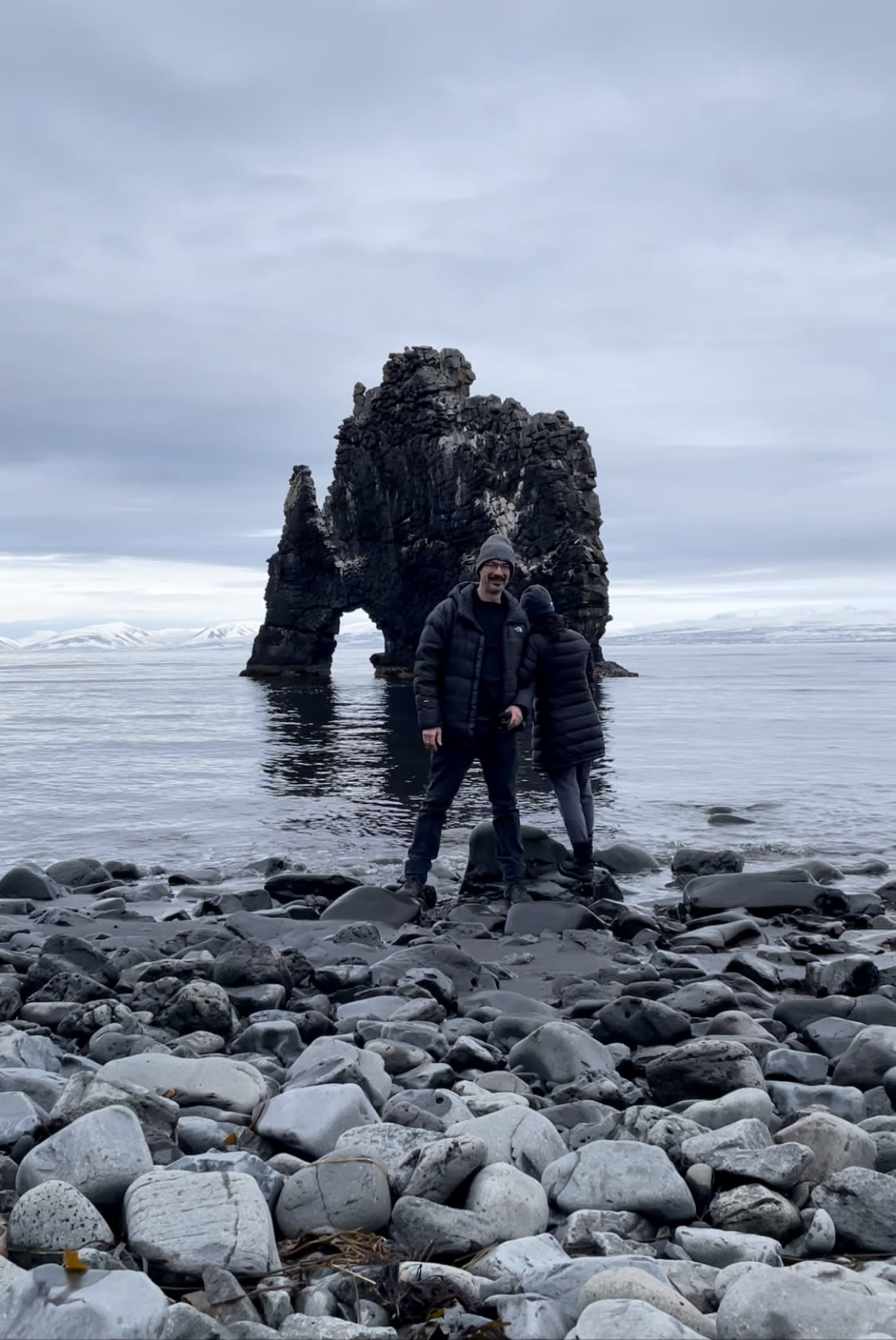Test, trace and trust: How Iceland became a Covid-19 success story
REYKJAVIK, Iceland — "We're open," Iceland Prime Minister Katrín Jakobsdóttir said in a recent interview.
Students are in classrooms. Partygoers are packed into bars and restaurants. Tourists are welcome. The country has recorded no cases of domestic Covid-19 transmission for weeks, and it has managed to keep dangerous new variants out, without shutting the borders.
"If I think about this pandemic, what really stands out is, really, how the Icelandic public has participated, how people have really placed their confidence in the advice of the experts and the scientists," Jakobsdóttir said. "They have actually changed their behavior."
Many other countries have imposed strict national lockdowns to control the spread of the coronavirus, but Iceland has not resorted to such extreme measures. Instead, it has focused on a rigorous system of testing, tracing, quarantine and isolation — and it has trusted visitors and residents to abide by it.
As a remote volcanic island in the North Atlantic near the Arctic Circle, with a small population of about 350,000, Iceland has intrinsic advantages when it comes to managing the pandemic. But Jakobsdóttir also credits the public health system, clear communication with the public and a general feeling of solidarity for the country's success.
"People are actually respecting the rules. They're following the rules," she said.
Iceland's procedure for entering the country is fairly straightforward: Visitors and returning citizens need to show negative PCR tests on arrival and then get tested at the airport and again after five days in quarantine.
"Ninety-eight percent of people turn up for the second test," Jakobsdóttir said. "And I think this is an amazing result."
Still, Iceland has recorded more than 6,000 confirmed cases of the coronavirus and 29 deaths. Thórólfur Guðnason, Iceland's chief epidemiologist, said the focus is now on preventing another wave as the country begins to open its borders even further.

Government advisers have decided to allow people who are fully vaccinated against Covid-19 or who had documented coronavirus infections previously to skip quarantine. While the World Health Organization has not supported the idea of vaccine passports that would allow some to avoid quarantines, Guðnason said he has seen enough preliminary results from countries like Israel, which has vaccinated a large share of its population, that suggest that they would not transmit the virus.
"You need to open the borders in some way. We have been trying to do that in a scientific way," he said.
Download the NBC News app for the latest news on the coronavirus
Brent Ozar, an information technology consultant from San Diego, moved to Iceland on a remote work visa, which a number of countries have been offering to attract foreign nationals. Iceland's visa for remote workers allows foreigners to live and work in the country for up to six months, as long as they meet certain requirements.
"I ended up in Iceland because I have asthma, and when the coronavirus hit we thought of all the places we could go in the world, and Iceland was just a magical place to go and be socially distant for a while," he said. "It feels like living in the countryside, maybe Michigan or Ohio, but with a real European flair."
Ozar said that beyond the location, however, he also feels much safer, because the public takes the coronavirus threat seriously.
"I don't have to worry about getting into elevators with people who aren't wearing masks," he said.

The solidarity has also allowed Iceland to keep its schools open, which other countries have struggled to do. In Iceland, children younger than 16 have been in classrooms since August.
"That has been a top priority for us," said Jakobsdóttir, who was elected in 2017 at age 41, making her one of the world's youngest leaders.
She said that when she decided to keep schools open, she also considered the effect it would have on women and their ability to work.
"I think if there's one lesson that we can derive from this pandemic is the importance of women's work around the world, in the health sector, in the welfare systems," she said.
And despite Iceland's success at managing the pandemic, Jakobsdóttir said she remained concerned about new coronavirus variants — as well as other dangers beyond Covid-19.
More than 20,000 earthquakes have rattled the Reykjanes Peninsula in recent weeks, and scientists fear a volcano could erupt in the area. Jakobsdóttir had to move this interview by several hours because she had to chair a disaster preparation meeting.
"When I talk about success, I do that knowing that things can change, and they can change pretty rapidly," she said. "Let's say we will stay on our toes."
